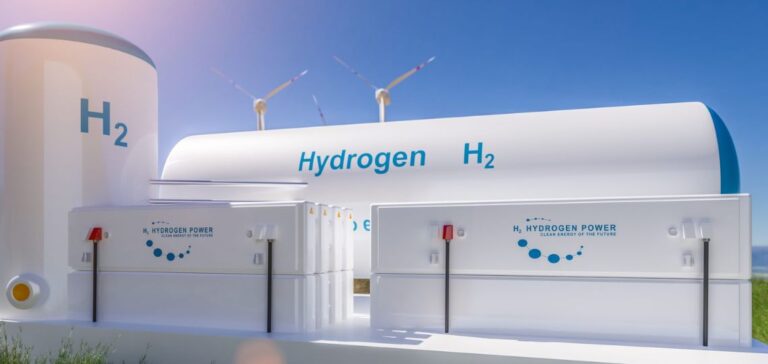The Arab monarchies of the Gulf have profited from fossil fuels for decades. They are now targeting green hydrogen as a way of diversifying their economies and making their commitment to combating climate change a reality.
Economic Diversification through Green Hydrogen
Saudi Arabia, the United Arab Emirates and the Sultanate of Oman are investing heavily in green hydrogen. This fuel would solve a number of challenges: it would be low-polluting, potentially lucrative and respectful of the planet.
Faced with falling oil revenues in recent years, “the Gulf States want to take the lead in the global hydrogen market”, Karim Elgendy, a researcher at British think-tank Chatham House, told AFP. “They see green hydrogen as essential to maintaining themselves as major energy powers and keeping their influence as demand for fossil fuels declines,” he observes.
Challenges and benefits of Green Hydrogen
Green hydrogen accounts for less than 1% of total production. It is made from renewable electricity. However, it is not yet commercially viable. Development could take several years. Green hydrogen differs from hydrogen produced from fossil fuels. This is produced from water and renewable energies: wind, sun and hydroelectricity. While fossil fuels emit harmful greenhouse gases when burned, green hydrogen emits only water vapor. In the long term, it is recommended for use in highly polluting industries such as transport, shipping and the steel industry. As the world’s leading crude oil exporter, Saudi Arabia is building the world’s largest green hydrogen plant in Neom, the futuristic megalopolis under construction on the shores of the Red Sea. Valued at $8.4 billion, the plant will integrate solar and wind power to produce up to 600 tonnes of green hydrogen per day by the end of 2026, according to the authorities.
Leadership and Regional Ambitions
Home to the Arab world’s only nuclear power plant, the United Arab Emirates, which will host the UN COP28 climate conference in late November, approved a hydrogen strategy in July aimed at making the country one of the top ten producers by 2031.
“Hydrogen will be an essential fuel for the energy transition,” Hanan Balalaa, head of the Emirati oil giant ADNOC, told AFP. “The Emirates are well placed to benefit from this.”
But it is Oman, far behind its neighbors in terms of fossil fuels, that is set to become the world’s sixth largest exporter and the Middle East’s largest by the end of the decade, according to the International Energy Agency (IEA) in a report published in June.
The Sultanate aims to produce at least one million tonnes of green hydrogen per year by 2030, and up to 8.5 million tonnes per year by 2050, “which would be more than the total hydrogen demand in Europe today”, according to the IEA.
According to auditing firm Deloitte, Middle Eastern countries, led by the Gulf, will dominate this market in the short term. And while North Africa and Australia are expected to have the greatest potential by 2050, the Gulf States will remain the “export leaders”.
Challenges of Green Hydrogen Adoption
However, green hydrogen has not slowed down Saudi Arabia and the Emirates in their ambitions to develop their hydrocarbon industries. According to experts, it will still be years before the Gulf countries can produce green hydrogen profitably.
“Gulf countries will strive to maximize hydrocarbon sales for as long as possible,” notes Aisha Al-Sarihi of the Middle East Institute at the University of Singapore. “It will take years of trial and error for green hydrogen to become a commercial product,” this expert tells AFP, who sees it as the potential “fuel of the future” once the technology matures and costs are lower.
Former UAE Minister for Climate Change, Abdullah Al-Nuaimi, told AFP that “the existing infrastructure for hydrogen transport is inadequate and will require massive investment”. For him, overcoming the challenges posed by hydrogen will take “too long”.






















